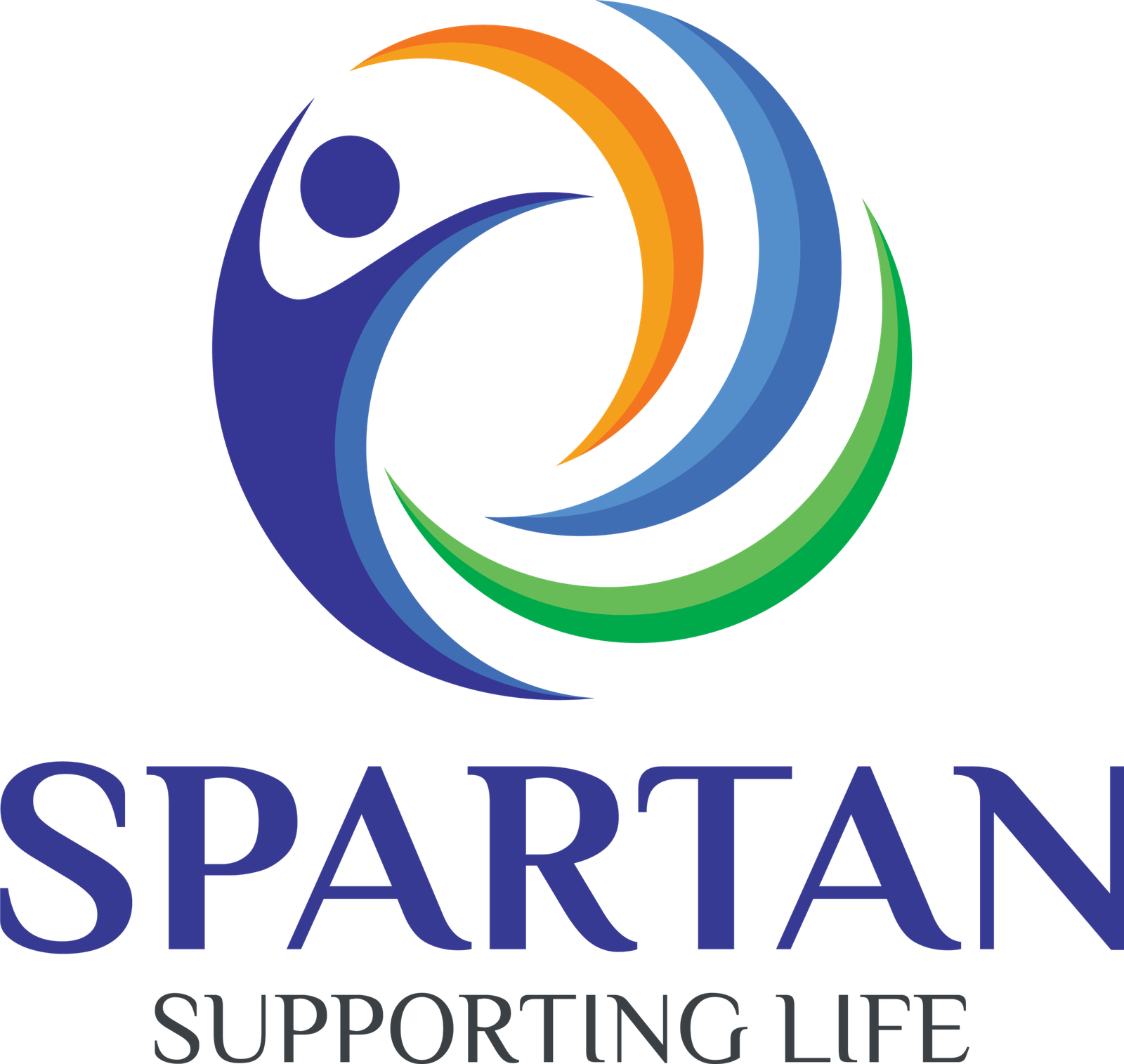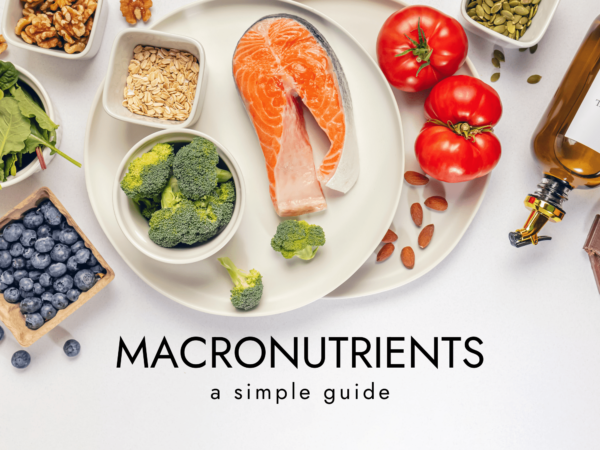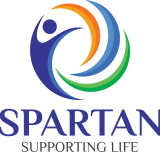As athletes, we know the dedication and hard work it takes to excel in our chosen sports. But did you know proper sports nutrition is crucial to peak performance? Sports nutrition isn’t just about what you eat – it’s about fueling your body with the right nutrients to enhance your performance and facilitate swift recovery. Whether you’re a casual jogger or a competitive athlete, understanding sports nutrition can be a game-changer in your journey towards success.
Take a free quiz to learn more about how SPARTAN can optimise your journey.
The Role of Sports Nutrition
Sports nutrition goes beyond basic dietary principles. It’s a tailored approach to eating that addresses the specific needs of individuals engaged in physical activity. The right nutrition plan can provide the energy required for intense workouts, aid muscle recovery, and improve overall endurance. By nourishing your body with the right combination of nutrients, you give yourself a competitive edge that can’t be achieved through training alone.

Key Nutrients for Athletes
Carbohydrates: Carbs are our bodies’ primary energy source, especially during exercise. They provide the fuel for powering through intense workouts and preventing premature fatigue.
Protein: Protein is essential for muscle repair, growth, and recovery. Including lean protein sources in your diet helps repair muscle tissues that inevitably experience wear and tear during physical activity.
Fats: Don’t shy away from healthy fats. They are an excellent source of sustained energy, supporting endurance sports while contributing to overall health.
Hydration and Electrolytes: Critical to Proper Sports Nutrition
Proper hydration is the cornerstone of sports nutrition. Dehydration can drastically impact your performance and recovery. Hydrating adequately before, during, and after exercise helps maintain your body’s fluid balance, regulate temperature, and prevent cramps. Electrolytes, such as sodium, potassium, and magnesium, are vital for maintaining hydration levels and preventing electrolyte imbalances during prolonged exercise.
Sports Nutrition Meal Strategies
Whether you’re gearing up for a challenging workout, during a training session, or recovering afterwards, your nutrition plays a pivotal role in your athletic performance. Here are practical tips to help you make the most of each stage:
Pre-Workout Sports Nutrition
Your pre-workout meal should be designed to fuel your performance. Aim for a balanced meal rich in complex carbohydrates, moderate protein, and low in fats. This combination provides sustained energy and prevents discomfort during exercise.
For example, a meal could include porridge, scrambled eggs, and a side of fruit. This meal offers a blend of carbohydrates for energy, protein for muscle support, and vitamins for overall health.
PRACTICAL TIPS:
- Timing is Key: Aim to eat a balanced meal roughly 1 to 2 hours before your workout. Doing this allows your body enough time to digest and utilise the nutrients effectively.
- Carb Up for Energy: Prioritise complex carbohydrates like well-chosen whole grains, oats, or sweet potatoes. These provide a steady release of energy throughout your exercise session.
- Protein for Muscle Support: Include adequate protein for muscle maintenance and repair. Lean sources like chicken, tofu, or Greek yoghurt work well.
- Snack Ideas: Quick and effective pre-workout snacks include a banana with a tablespoon of nut or seed butter (almond, sesame, pumpkin) or a bowl of yoghurt with a well-chosen, non-sugary granola mix. These provide a combination of carbs, protein, and healthy fats.
During-Exercise Sports Nutrition
Endurance athletes engaged in prolonged activities, like long-distance running or cycling, can benefit from consuming easily digestible energy sources while exercising. Energy gels, sports drinks, and easily portable snacks provide quick carbs to sustain energy levels.
PRACTICAL TIPS:
- Fuel for Endurance: If you’re engaged in endurance activities lasting over an hour, consider using energy gels or chews. These concentrated sources of carbohydrates provide a rapid energy boost, helping you maintain performance.
- Hydration is critical: Take small sips of water during your workout to stay hydrated. For extended or intense exercise sessions, consider a sports drink that replenishes lost electrolytes, helping to prevent cramps and maintain fluid balance.
Post-Workout Sports Nutrition
The post-workout sports nutrition window is a critical period for recovery. After exercise, your muscles are primed to absorb nutrients that aid repair and growth. Prioritise protein intake to support muscle recovery and carbohydrates to replenish glycogen stores.
Consider drinking a protein shake with whey protein, a banana, and some nut butter. A blended protein shake is tasty and delivers much-needed protein for muscle repair and carbs for glycogen replenishment.
PRACTICAL TIPS:
- Protein for Recovery: Consume protein within 30 minutes after your workout. Your muscles are most receptive to nutrient uptake, facilitating muscle recovery and growth after a workout.
- Replenish Glycogen: Pair your post-workout protein with carbohydrates to replenish glycogen stores in your muscles. Opt for high-quality complex carbs like quinoa, lentils, oatmeal, millet, wild rice, and sweet potatoes.
- Quick Meal Ideas: A Turkey or chicken bowl with quinoa and plenty of veggies can be a balanced post-workout meal. Alternatively, a protein smoothie blended with berries, and a scoop of high-quality protein powder is convenient.

Other Factors to Consider
The Role of Supplements in Sports Nutrition:
While whole foods should form the foundation of your nutrition plan, supplements can complement your efforts. Whey-based protein powders, Branched-Chain Amino Acids (BCAAs), and vitamins can provide additional support. However, remember that supplements are not a substitute for a balanced diet.
Protein Powder: Protein powder is a convenient way to ensure you’re getting enough protein for muscle recovery. It’s convenient when a lengthier post-workout meal isn’t feasible.
BCAAs (Branched-Chain Amino Acids): BCAAs can benefit muscle support during intense training. They provide amino acids that promote muscle protein synthesis.
Multivitamins: While whole foods should be your primary source of nutrients, a multivitamin can fill in any potential micronutrient deficiencies in your diet, ensuring your body gets all the essential vitamins and minerals.



Tailoring Nutrition to Specific Sports
The relationship between sports nutrition and athletic performance is not one-size-fits-all. Different sports have varying demands on the body. Endurance sports require more carbs, while strength-based sports may focus on protein intake. Tailoring your diet to match the unique demands of your sport can make a significant difference. Here’s how to adapt your nutrition based on the type of sport you engage in:
Sports Nutrition for Endurance Sports: Athletes involved in endurance activities like long-distance running, cycling, or triathlons need a steady energy source to fuel their workouts. In these cases, prioritise carbohydrates in your diet. Carbs are the body’s preferred energy source for sustained activities, and they help prevent fatigue during extended sessions. Incorporate complex carbohydrates such as well-chosen whole grains, fruits, and vegetables into your meals to maintain energy levels throughout your training and competition.
Sports Nutrition for Team Sports: Team sports like soccer, basketball, or football require a well-rounded approach to nutrition. Athletes in these sports benefit from a balanced diet that covers all macronutrients: carbohydrates, proteins, and fats. Carbs provide quick energy for sprints and bursts of activity, proteins aid in muscle recovery, and fats offer sustained energy and support various bodily functions. The key is maintaining balance and adjusting your portions based on training intensity and game schedules.
Sports Nutrition for Strength Training: Protein becomes a focal point for athletes in strength training, such as weightlifting or bodybuilding. Protein is essential for muscle repair, recovery, and growth. Aim to increase your protein intake to support the repair and growth of muscle tissue stressed during resistance workouts. Lean sources like chicken, fish, lean beef, and plant-based options like tofu and legumes are excellent choices to support your strength-building goals.
Recovery Strategies
Recovery is integral to an athlete’s routine, encompassing more than just sports nutrition. Effective recovery strategies can boost your overall performance and reduce the risk of injury. Here’s how to enhance your recovery:
Stretching and Foam Rolling: Incorporate regular stretching and foam rolling sessions into your routine. Stretching improves flexibility and range of motion, while foam rolling helps reduce muscle soreness and tension. This dynamic duo promotes muscle recovery and minimises the risk of injury.
Adequate Rest and Quality Sleep: Rest and sleep are non-negotiable for recovery. Your body repairs and regenerates tissues during rest, and quality sleep plays a crucial role. Aim for 7-9 hours of quality sleep each night, and consider short naps (20-30 minutes) if possible to recharge during intense training periods.
Long-Term Nutritional Planning
Consistency is the cornerstone of long-term success in sports nutrition. To optimise your performance over time, consider the following strategies:
Caloric Adjustments: Modify your calorie intake based on the intensity of your training. You may need to increase your calorie consumption during intense training or competition to meet energy demands. Conversely, when training volume decreases, adjust your calories accordingly to prevent excess weight gain.
Periodisation: Periodising your nutrition involves aligning your dietary intake with your training phases. For instance, during the off-season, you may focus on building strength and muscle, so your sports nutrition plan would emphasise protein intake. During the competition season, shift towards carbohydrate-focused meals to ensure you have the energy required for peak performance. Periodisation optimises your sports nutrition plan to match your training goals and schedule.
By tailoring your sports nutrition plan to your specific sport, prioritising recovery strategies, and adopting a consistent, long-term nutritional plan, you’ll be better equipped to reach and maintain your athletic goals while minimising the risk of burnout or injury. Remember that personalised guidance from a sports nutritionist or dietitian can be invaluable in optimising your nutrition plan.
Summary
Sports nutrition is the unsung hero behind many athletic success stories. You can optimise your performance and recovery by understanding the role of carbohydrates, proteins, fats, hydration, and strategic meal timing. Remember, no two athletes are the same – personalised nutrition is the key to unlocking your full potential. So, fuel your body right, prioritise recovery, and watch your athletic achievements soar to new heights.
Consider consulting a certified nutritionist or dietitian for personalised guidance on your sports nutrition journey. Share your experiences and tips on sports nutrition in the comments below – let’s inspire and learn from each other!
KEY TAKEAWAYS ON SPORTS NUTRITION:
- Sports nutrition fuels performance and recovery for athletes of all levels.
- Carbs provide energy, proteins aid muscle repair, and healthy fats sustain endurance.
- Hydration and electrolytes are vital for optimal performance and preventing cramps.
- Pre-workout meals balance carbs and protein for sustained energy.
- During exercise, consider energy gels and stay hydrated.
- Post-workout nutrition with protein and carbs supports muscle recovery.
- Supplements like protein powder and BCAAs can complement your diet.
- Tailor nutrition to your sport, focusing on specific nutrient needs.
- Recovery involves stretching, rest, and quality sleep.
- Consistency is critical. Adjust calorie intake based on training intensity and periodise your nutrition to match different training phases.
- No two athletes are the same, so personalised nutrition plans are crucial for unlocking your full potential.
- Personalised guidance through nutrition coaching can be a game changer on your sports nutrition journey.
YOUR JOURNEY STARTS WITH A CONVERSATION
At Spartan, personalisation isn’t just a word. It’s our guiding principle.
We’re committed to understanding your individual journey. That’s why nutrition coaching with our Spartan LAW system focuses on tailor-made solutions. We believe in more than just a transaction; we believe in personal connections.
Reach out to us for a one-on-one chat about your aspirations, and let’s embark on your transformation together.





